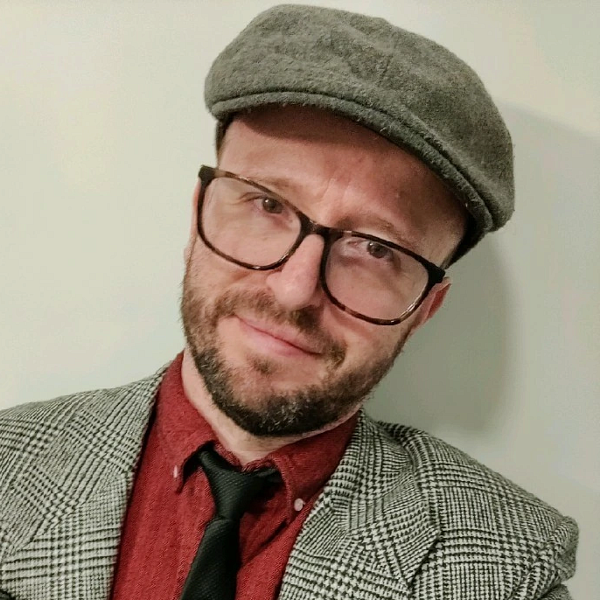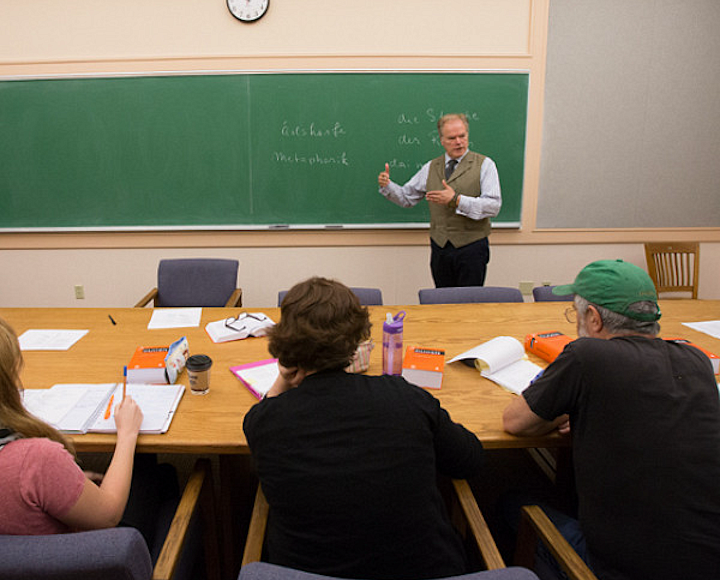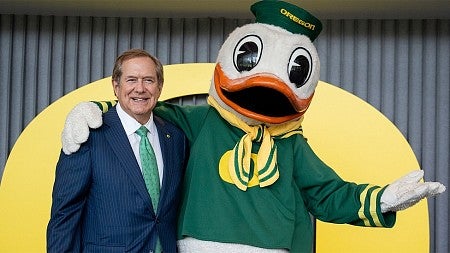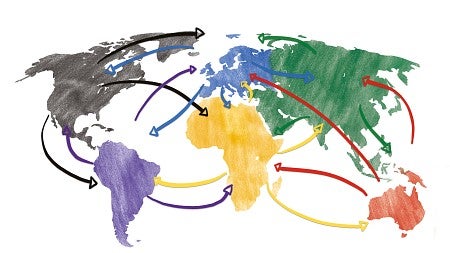In our department, you can take classes in the areas of German Studies, Scandinavian Studies, or both. In German classes, you’ll learn about the Northern and Central European cultures of Germany, Austria, and Switzerland. In Scandinavian courses, you’ll learn about Sweden, Norway, Finland, and Iceland. We study these places both today and in the near and distant past. We teach the German and Swedish languages, and support Yiddish as well. We explore all of these interrelated cultures holistically from social, political, environmental, literary, cinematic, mediatic, and artistic perspectives. In doing so, we consider formal and philosophical themes, as well as the histories of the ideologies of race, gender, class, and religion, always from an interpretively open-ended and dialogical point of view. Our faculty members, who specialize in modern culture, give our students personal attention, helping them to advance their intellectual and pre-career development.
Germany and Scandinavia on the Margins
For 2025-26, a number of courses offered in our programs will be grouped around the theme Germany and Scandinavia on the Margins. You are invited to learn about the ways in which marginalized voices are given life in literary and cinematic narratives, and figure in critical assessments of the Scandinavian and German societies and cultures. The course sequence GER 221 (Postwar Germany: A Nation Divided) [Fall], GER 222 (Fascism and Culture) [Winter], and GER 223 (Germany: A Multicultural Society) [Spring] will present German social and cultural history from the 1930s to the present, ranging from the perpetration of genocide to countercultural movements and the development of a more inclusive society. GER 354 (German Gender Studies) [Winter] will focus on mermaids as figures of transgression, while SCAN 325 (Constructions vs. Constrictions of Identity) [Spring] looks at Scandinavian children’s literature as a genre in which normative hierarchies are challenged. JDST 354 (Global Yiddish Cultures) [Spring] investigates the vital role that Yiddish plays as a language that retains a close bond to German while not coinciding with it. The future of the human and more-than-human environment as imagined in narrative will be the subject of GER 407/507 (Speculative Fiction) [Winter], while GER 351 (Diversity in Germany) [Fall], SCAN 251 (Outsider Narratives) [Fall], SCAN 259 (The Sagas and Hybrid Culture), SCAN 341 (Indigenous Scandinavia) [Winter], and SCAN 315 (Queer Nordic Cinema) attend to marginalized perspectives across Scandinavia and Germany.
A huge thank you to Portland real estate developer, philanthropist and UO alumnus Jordan Schnitzer and the Harold & Arlene Schnitzer CARE Foundation, for a landmark $25 million gift to CAS that will empower future global leaders and problem solvers! The School of Global Studies and Languages is now named the Schnitzer School of Global Studies and Languages, and we are truly excited to be a part of it!
What You Can Do with a Degree in German and Scandinavian
What kind of career can you get with language skills? Studying German and Scandinavian can take you just about anywhere! Our alumni are traveling the world, making an impact in their communities, and building careers with a broad range of organizations such as:
- International companies
- Media and high-tech companies
- Nongovernmental organizations and agencies
- Public interest groups
- Museums and archives
- Social welfare organizations
- Colleges and universities

How German and Scandinavian Studies Broadens Your Career
“Learning another language was a paradigm shift that changed my way of viewing the world and my daily experience. It also opened me to opportunities to work with people from around the world, learning of other cultures and perspectives, in pretty much every job role or educational position since. Also, the graduate courses taught me critical theory and were my initial exposure to philosophy, which have dramatically impacted my life more than anything else I've learned.”
—Zachary Tigert, program manager, Microsoft
Our Degree Programs
We offer multiple majors and minors in German and Scandinavian studies. Our MA and PhD programs are rigorous, yet supportive. Our students dive into critical analysis of post-Enlightenment modernity and often pursue interdisciplinary research.

Learn from Experts in the Field
Our faculty comprises both German and Scandinavian specialists whose research interests range from folklore and fantasy to gender and film, and from psychoanalysis and Jewish studies to philosophy and critical thought. They are passionate scholars who inform and inspire and are dedicated mentors who help students build real-world skills and strong professional networks.

Get Real-World Experience
Studying language abroad accelerates the development of speaking and comprehension skills while giving students a real-world experience within the culture they’re studying. Our students have access to dozens of study abroad programs in Germany and Scandinavia, from our decades-long partnership with Heidelberg, Tübingen, and other universities in Baden-Württemberg to numerous specialized programs in Berlin, Copenhagen, Uppsala, and beyond.
Scholarships and Funding
The Department of German and Scandinavian awards multiple scholarships to current undergraduate students who are declared majors or minors within the department. Graduate students are typically compensated for teaching language classes to undergraduates and are eligible for additional fellowships and scholarships.
Academic Support
Our academic advisors can help students understand their major or minor requirements, plan their course of study, explore study abroad opportunities, and more.



